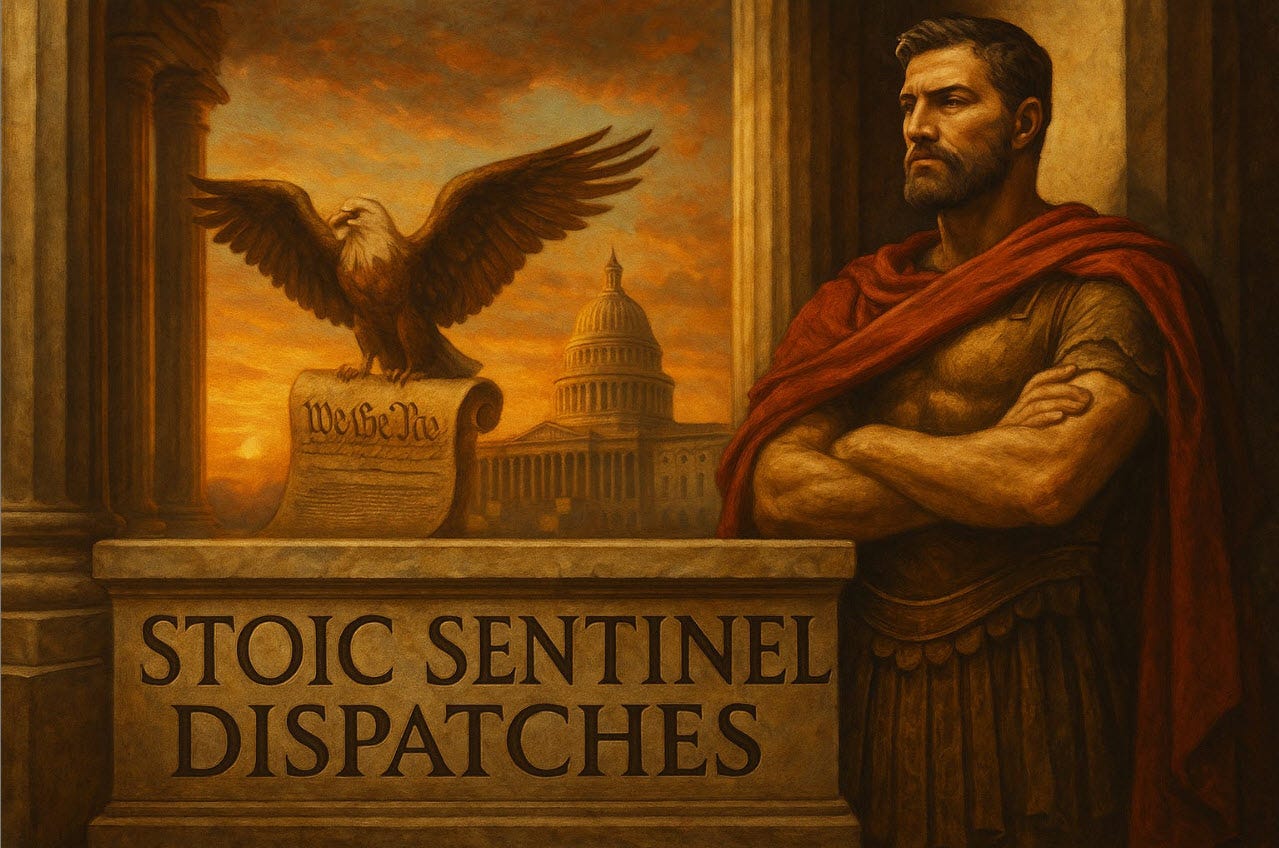The Illogic of Denial: Why Medicare Cuts Are Coming, Whether We Admit It or Not
The “One Big Beautiful Bill” cuts Medicaid and signals broader federal health spending reductions. Denying that Medicare cuts will follow leads to an absurd conclusion—and Americans will pay the price
Denying Reality Doesn’t Change It
It has become a strange ritual of our political moment: pass sweeping legislation, then insist the consequences won’t touch the sacred. In the case of the One Big Beautiful Bill, signed into law with fanfare and patriotic branding, we are told it cuts Medicaid—yes—but that Medicare will be spared. Millions will lose coverage, yes—but most Americans will be fine.
That, dear reader, is wishful thinking masquerading as policy.
Let us reason through this the Stoic way—not through fear or ideology, but with logic. Let us walk the path of reductio ad absurdum—a method older than the Republic—where we follow an opponent’s claim to its logical end and see where it breaks down. What we discover is this: to believe that Medicare will not be cut, or that Americans will not suffer the consequences, is to believe in contradiction itself.
What the Bill Actually Does
Let us start with the facts—unvarnished and sourced:
The One Big Beautiful Bill approved cuts to Medicaid, which provides health care to tens of millions of low-income Americans (Congressional Budget Office, 2024).
In 2024, the Centers for Medicare and Medicaid Services (CMS) spent $1.5 trillion, with $638 billion allocated to Medicaid and the Children’s Health Insurance Program (CMS Data, 2024).
Medicaid enrollment has fallen 15.5% since its peak in 2023, dropping to 84.6 million as of June 2024.
The CBO estimates that these policy changes will leave 16 million more Americans uninsured by 2034.
And crucially: Medicare and Medicaid are not separate silos. Both are funded as part of mandatory federal health spending—the very thing the bill aims to reduce.
The Assumption Under Scrutiny
Let us suppose, for argument’s sake, that the following is true:
“Medicare will not be cut, and Americans will not be impacted by this bill.”
Let us carry this assumption to its logical conclusion and see what follows.
Reductio ad Absurdum: The Path to Contradiction
If Medicaid, a smaller and poorer-serving program, is cut, but Medicare—a vastly larger and costlier program—is not, the policy lacks fiscal coherence. Why target the smaller ship while letting the fleet’s flagship drift into insolvency?
If the government is cutting mandatory health spending, and Medicare represents the largest share of that spending, how can it remain untouched? A reduction in overall weight without affecting the heaviest part of the load is metaphysically impossible.
If 16 million Americans will lose insurance due to these changes, we cannot say with integrity that “Americans won’t be affected.” That is an erasure of suffering, not a rebuttal.
If we preserve Medicare entirely, future taxpayers—already burdened by record debt—will inherit a structurally imbalanced health system. That, too, is an impact. It is simply delayed, not avoided.
To maintain the belief that Medicare cuts won’t happen is to suggest that Congress can alter the laws of mathematics, demography, and actuarial reality by sheer force of rhetoric.
This is absurd.
The Stoic Statesman’s View
As Cicero wrote in De Officiis, the statesman must not be guided by applause but by foresight. The refusal to speak plainly about Medicare’s future is not prudence—it is cowardice cloaked in optimism.
Stoicism teaches us to face reality, not to flee it. If cuts are coming—and they are—we must prepare for them with moral clarity. Not all cuts are unjust, but deception about them always is.
Integrity Requires Acknowledgment
We are not children to be soothed with soft illusions. We are citizens. And citizens must reason through policy, not merely receive it.
The One Big Beautiful Bill cuts Medicaid. It will cause millions to lose coverage. And yes—it paves the way for Medicare cuts, whether by direct appropriation, rationed reimbursement, or the quiet erosion of service quality.
To deny this is to step into contradiction. To accept it is to begin preparing wisely.
Let us choose reason. Let us speak the truth plainly. Let us lead with virtue.
Call to Action:
🧭 If you found this essay clarifying, share it with someone who needs to hear a reasoned voice amidst the noise. And if you want more essays grounded in truth, virtue, and the enduring principles of the Republic, subscribe below.




